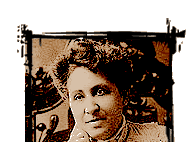
The National Association of Colored Women's Clubs, Inc.
Women of Empowerment
NACWC
At the call of Mrs. Josephine St. Pierre Ruffin, the National Association of Colored Women's Clubss, Inc. was founded in Washington, D.C. in July 1896 by the merger of the National Federation of Afro-American Women, the Women's Era Clubs of Boston, and the Colored Women's League of Washington, D.C.
The Association became and has remained a significant voice in national affairs and contributed to the uplifting of the American way of life since 1896. Membership includes women and youth in 32 states dedicated to "raising to the highest plane the homelife, moral standards, and civic life of our race." As we continue in the mainstream of economic progression, we, the colored women of the United States of America, stand united for service to humanity.
In 1895, Josephine St. Pierre Ruffin issued a call for a national meeting of Colored Women to take place in Boston, Massachusetts. Following that initial meeting, the National Association of Colored Women's Clubss, Inc. was organized in 1896 in Washington D.C. at the Nineteenth Street Baptist Church. NACWC grew out of the merger of two nationally representative organizations. The Colored Women's League of Washington and the National Federation of Afro-American Women. Mrs. Mary Church Terrell was elected the first president.
The Colored Women's League was organized in 1893 in Washington, D.C. with Mrs. Helen Cook as President. The National Federation of Afro-American Women had been organized in Boston, Massachusetts in 1895 with Mrs. Booker T. Washington as President.
The birth of NACWC in 1896 marked the beginning of a new era in African American womanhood and provided a vehicle for action through organized effort.
Mission
Objectives
- To work for the economic, moral, religous and social welfare of women and youth.
- To protect the rights of women and youth.
- To raise the standard and quality of life in home and family.
- To secure and use our influence for the enforcement of civil and political rights for African Americans and all citizens.
- To promote the education of women and youth through the work of the departments.
- To obtain for African American women the opportunity of reaching the highest levels in all fields of human endeavor.
- To promote effective interaction with the male auxiliary.
- To promote inter-racial understanding so that justice and good will may prevail among all people.
- To hold educational workshops biennially at the Convention.
“Embracing Change: Honoring Our Great Legacy Through Restructure and Adaptation”
For more than 119 years, the National Association of Colored Women’s Clubs, Inc., has been a leader in igniting and securing the rights of women, children and families. Founded in 1896, we are the oldest women of color organization in the country’s history. The activities and contributions of NACWC, have helped to improve the quality of life for all people, even those in other countries.
| |
In response to a vicious attack on the character of African-American women by a Southern journalist, combined with the spread of disfranchisement, lynching, and segregation, and the desire to "uplift" the race, black women organized a club movement that led to the formation of the National Association of Colored Women (NACW) in Washington, D.C. in 1896.
The organization's founders included some of the most renowned African-American women educators, community leaders, and civil-rights activists in America, including: Harriet Tubman, Frances E.W. Harper, Josephine St. Pierre Ruffin, Margaret Murray Washington, Ida B. Wells-Barnett, and Mary Church Terrell, who became the organization's first president.
The NACW adopted the motto "Lifting as We Climb." Josephine St. Pierre Ruffin set the tone when she announced that black women have to present a positive image of the race to the world.
"Too long have we been silent under unjust and unholy charges; we cannot expect to have them removed until we disprove them through ourselves."
Tennessee State University
The Frankie J. Pierce Chapter



Women of Empowerment.




History



